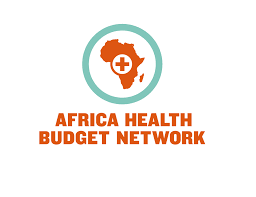By Iyemah David
The Africa Health Budget Network (AHBN), has emphasised the need for enhanced accountability in health security finances and equitable vaccine access in Africa.
Dr Aminu Magashi Garba, Coordinator, AHBN, made the call on Tuesday in Abuja, at the 2023 Africa Regional Advocacy Summit for Non-Governmental Organisations (NGOs) and Media in Abuja
The Summit, with the theme: “Capacity Building, Peer Learning and Exchange on Accountability for Domestic Resource Mobilization for Health Security and Systems in Africa” had in attendance participants from Cameroon, Kenya, Malawi, Nigeria, Sierra Leone, Senegal, Uganda and Zimbabwe.
Dr Magashi said that addressing existing gaps and proposing solutions in health security on the continent would contribute to the global dialogue on strengthening health systems and ensuring a more resilient and equitable future for the continent.
He said that the COVID-19 pandemic has exposed significant gaps in health security systems worldwide, and Africa has been particularly vulnerable.
“As the continent grapples with the challenges of limited resources, weak healthcare infrastructure, and a lack of access to essential vaccines, there is an urgent need to strengthen accountability for health security finances and ensure equitable vaccine distribution,” he said.
He shed light on the importance of enhancing accountability mechanisms in Africa’s health systems, particularly in the context of financing and vaccine access.
He said that by exploring the current challenges faced by the continent and proposing potential solutions, it would seek to contribute to the ongoing global efforts to address health security gaps and promote sustainable development in Africa.
Magashi said that the summit would provide an overview of the current state of health security in Africa, highlighting the existing vulnerabilities and gaps in healthcare systems.
“It will discuss the impact of limited financial resources on health infrastructure, human resources, and access to vaccines.
“It will delve into the importance of strengthening accountability for health security finances, and explore the need for transparent and efficient financial management systems, including effective budget allocation, tracking, and reporting mechanisms.
“It will also discuss the role of international partnerships and donor support in ensuring sustainable funding for health security initiatives,” he said.
He said it would focus on vaccine access and distribution in Africa, while looking at the challenges faced by the continent in securing adequate and timely access to vaccines, including issues related to affordability, supply chain management, and vaccine hesitancy.
The Co-chair of AHBN, Malam Mohammed Usman, emphasised the need for equitable vaccine distribution strategies that prioritise vulnerable populations and ensure no one is left behind.
He proposed potential solutions to strengthen accountability for health security finances and improve vaccine access in Africa.
Usman highlighted the importance of multi-stakeholder engagement, data-driven decision-making, and capacity building to enhance accountability mechanisms.
He, however, discussed the role of regional and international collaborations in supporting African countries’ efforts to strengthen health security.
On his part, Project Officer for Health Alert Sierra Leone (HASIL), Mr David Aliyu, said, “For my country, what we need is setting up of one-stop agency that will be addressing emerging diseases in the country and strengthening the health service delivery with resources and funding, with government putting more funding.
“As it is, we have not reached the Abuja Declaration which is calling for 15 per cent but we are around 11 per cent. We are calling on the government to ensure that it puts more resources into the health service delivery as they it has done for education.
“We are calling on the government to at least reach the Abuja Declaration that they signed. We are calling on government and donor partners to collaborate with community structures as fighting diseases required everybody’s engagement.”
“Furthermore, we need the Government and International donors to pay attention to surveillance and setting up of a one-stop agency at every country level to ensure that we address surveillance and emerging diseases.”
Similarly, delegates from Uganda and Kenya also complained that due to a lack of accountability frameworks, a good percentage of money budgeted for the health sector ends up in private pockets.
These funds, they queried, could have been channelled into revamping the sector.




